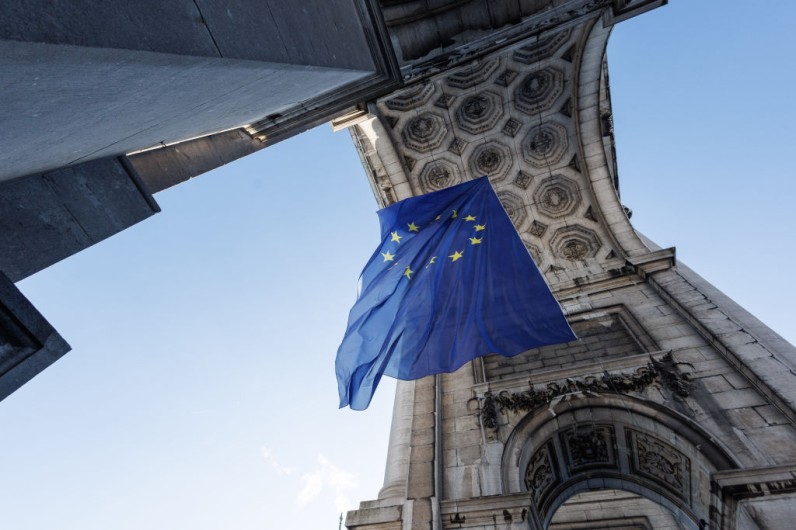The European Union (EU) is unlikely to seize the frozen assets of the Russian central bank in Europe, despite plans of G7 leaders to review the legality of such a move in a meeting next month, according to senior EU officials.
Reuters reported that the freezing of around $300 billion of Russian central bank assets by the EU, United States, Japan, and Canada in 2022 was in response to Russia's invasion of Ukraine.

EU to Confiscate Frozen Assets of Russian Central Banks for Ukraine?
The discussion about confiscating frozen assets of the Russian central bank comes as President Joe Biden faces Republican opposition to his appeal for another $61 billion in aid to Ukraine.
Due to Hungary's opposition, the EU is also facing difficulties agreeing on a 50 billion euro ($54.36 billion) aid package for Ukraine until 2027. Hungary's Prime Minister Viktor Orban has reportedly close ties with Russia.
While there are calls to confiscate these frozen assets to fund Ukraine's war effort, European officials dismiss it as very legally risky.
A senior EU official with insight into talks on the matter told Reuters that the "confiscation of the capital of the Russian assets is not going to happen" since there is no agreement about this among EU member states.
Luxembourg Foreign Minister Xavier Bettel also told Reuters that he was "very cautious" about confiscating the assets.
"Imagine if we decide politically to give billions to Ukraine. And in six months we have a judicial decision saying we are not allowed to give it to them. Who will pay will then?," Bettel told the outlet in an interview.
READ ALSO : EU to Delay Tariffs on UK Electric Vehicles for 3 Years, Offers €3 Billion to Boost Battery Manufacturing
EU Officials Cautious in Seizing Frozen Assets of Russian Central Banks
EU officials have not only expressed concerns about the legality of seizing sovereign assets but also feared potential repercussions for the euro currency and Russia's actions in retaliation.
Investors might reportedly pull out of euro assets out of concern that their money might one day be seized, too. Russia has vowed to retaliate by confiscating Western assets in the country, which is reportedly worth $288 billion.
Belgium, currently holding the EU presidency, approached the matter cautiously, underscoring the importance of legal soundness and avoiding financial stability impacts.
"We need to be very prudent with that proposition. I think that it's important that what can come on the table should be legally sound and we should avoid any impact on financial stability," Belgian Finance Minister Vincent van Peteghem said on Tuesday.
Euroclear, which has "substantial" assets in Russia, was among those that Moscow could seize, posing a financial stability risk to the Belgium-based major clearinghouse with significant repercussions.
Instead of seizing the Russian assets, EU governments will likely support a European Commission proposal from December to gain control of only the profits from the assets, leaving the principal intact. Officials said this could generate 15 to 17 billion euros over four years that could be forwarded to Ukraine.







Join the Conversation